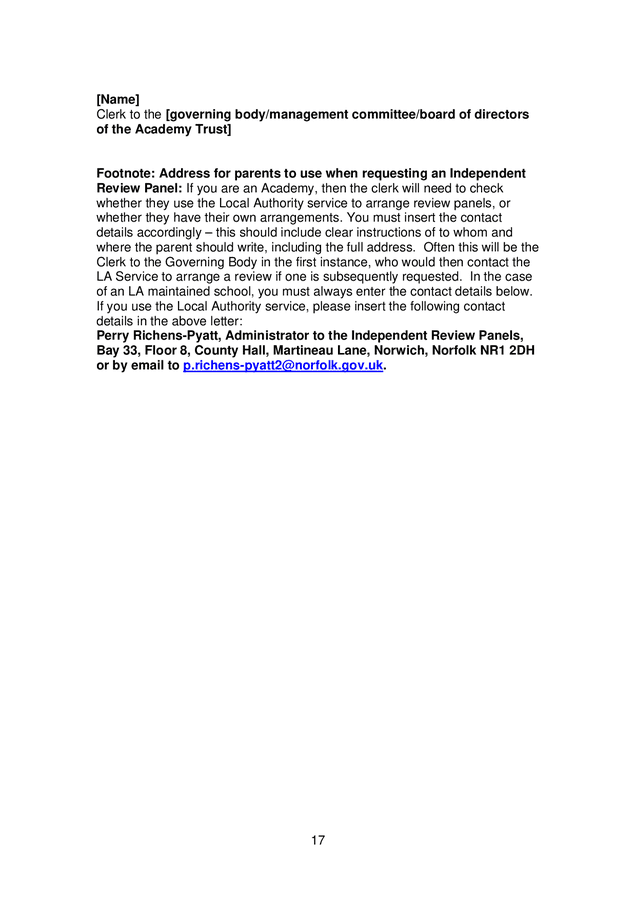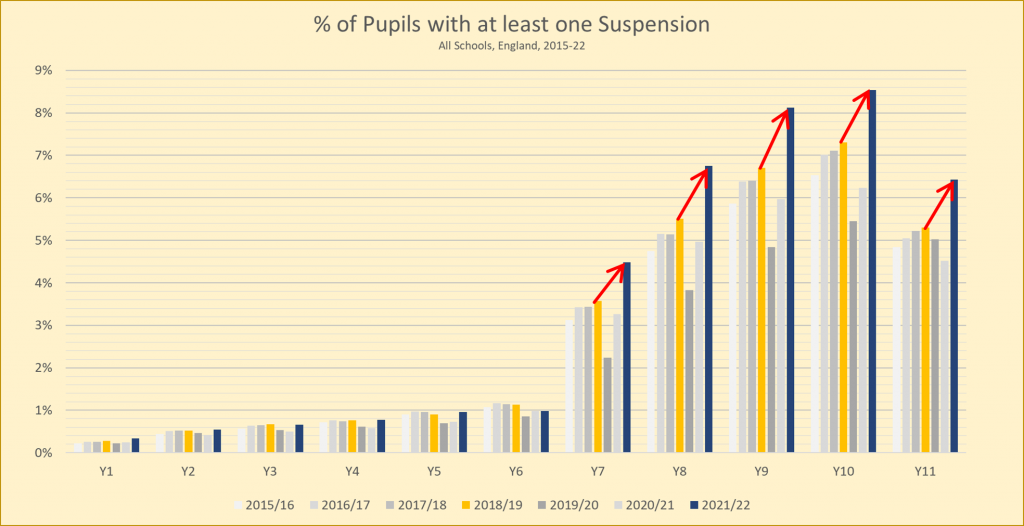School Suspensions: A Path To Failure Or A Path To Reform?

Table of Contents
The Negative Impacts of School Suspensions
School suspensions, while seemingly a straightforward disciplinary measure, carry far-reaching negative consequences for students and the educational system as a whole. Their impact extends beyond a temporary removal from class, creating a ripple effect that hinders academic progress and contributes to larger societal issues.
Increased Risk of School Failure
Suspensions directly contribute to increased rates of school failure. The lost instructional time significantly impacts academic performance, creating an achievement gap that is often difficult to overcome.
- Lost Learning: Days missed due to suspension translate to lost lessons, assignments, and crucial learning experiences, putting students behind their peers.
- Increased Absenteeism: Students suspended are more likely to experience subsequent absences, both excused and unexcused, further hindering their learning.
- Behavioral Regression: The experience of suspension can exacerbate existing behavioral problems. Returning to school feeling isolated and alienated can lead to further disciplinary actions.
- Higher Dropout Rates: A strong correlation exists between frequent suspensions and higher dropout rates. The cumulative effect of missed learning and social alienation contributes to disengagement and ultimately, leaving school.
The Disproportionate Impact on Marginalized Students
School suspension rates reveal stark racial and socioeconomic disparities. Students of color, particularly Black and Hispanic students, are suspended at significantly higher rates than their white peers, even when controlling for factors like behavioral infractions. This disparity highlights the role of implicit bias in disciplinary decision-making.
- Racial Bias in Discipline: Studies demonstrate that unconscious biases influence how educators perceive and respond to student behavior, leading to harsher punishments for students of color.
- Socioeconomic Factors: Students from low-income families are also disproportionately affected by suspensions, often due to factors outside the school environment, such as lack of resources and support at home.
- Mental Health Impact: Suspensions can negatively impact students' mental health and well-being, leading to feelings of shame, isolation, and alienation, potentially contributing to future behavioral problems.
- Limited Access to Support: Students from marginalized groups often lack access to crucial support services that could address the root causes of their behavioral issues.
The Prison Pipeline
The connection between school suspensions and increased risk of juvenile delinquency and incarceration is undeniable. Frequent suspensions contribute to the "school-to-prison pipeline," a system that funnels students from school disciplinary actions into the juvenile justice system.
- Criminalization of Misbehavior: Minor infractions, which might be addressed differently in more supportive environments, can lead to suspensions and subsequent involvement with law enforcement.
- Lack of Intervention: Suspensions often fail to address the underlying causes of student misbehavior, leaving students without the support they need to change their behavior.
- Negative Labeling: Being labeled as a "problem student" can become a self-fulfilling prophecy, leading to further behavioral issues and increased likelihood of involvement with the justice system.
- Cycle of Punishment: The punitive nature of suspensions perpetuates a cycle of punishment that doesn't promote positive behavior change or rehabilitation.
Alternative Approaches to School Discipline: A Path to Reform
Rather than relying on suspensions as the primary disciplinary tool, schools should adopt alternative approaches that focus on prevention, intervention, and restorative practices. These strategies prioritize student well-being, create positive school environments, and promote improved academic outcomes.
Restorative Justice Practices
Restorative justice emphasizes repairing harm caused by wrongdoing and fostering understanding and accountability. It moves away from punitive measures and focuses on collaborative problem-solving.
- Conflict Resolution: Instead of suspensions, restorative justice utilizes conflict resolution strategies to address conflicts between students, teachers, and the school community.
- Peer Mediation: Students are empowered to mediate conflicts amongst their peers, fostering responsibility and communication skills.
- Restorative Circles: These facilitated meetings bring together students, staff, and families to discuss issues, repair harm, and build relationships.
- Improved School Climate: Restorative practices contribute to a more positive and inclusive school climate where students feel supported and respected.
Positive Behavior Interventions and Supports (PBIS)
PBIS is a proactive framework focused on preventing behavioral problems before they escalate. It involves creating a positive school climate and teaching students expected behaviors.
- Proactive Strategies: PBIS emphasizes teaching positive behaviors through clear expectations, consistent reinforcement, and effective classroom management.
- Behavioral Support: It provides tiered systems of support to address students' needs, ensuring that early intervention is available to prevent escalation of behavior problems.
- Data-Driven Decision Making: PBIS utilizes data to monitor student behavior and make informed decisions about interventions and support services.
- Positive School Climate: By promoting a positive and inclusive school environment, PBIS contributes to a decrease in disciplinary incidents.
Investing in Student Support Services
Providing adequate resources for students' mental health, social-emotional learning, and academic needs is paramount. This includes investing in support staff and programs to address the root causes of behavioral issues.
- Mental Health Professionals: Schools need to employ counselors, social workers, and psychologists to provide support to students struggling with mental health challenges.
- Social-Emotional Learning: Implementing social-emotional learning programs helps students develop crucial skills like self-regulation, empathy, and conflict resolution.
- Early Intervention Programs: Providing early intervention services can prevent behavioral problems from escalating and contributing to suspensions.
- Academic Support: Ensuring students receive the academic support they need can reduce frustration and improve behavior.
Conclusion: Rethinking School Suspensions for a Brighter Future
The overuse of school suspensions has demonstrably negative consequences, contributing to school failure, exacerbating disparities, and fueling the school-to-prison pipeline. To create safer, more supportive learning environments for all students, we must move beyond punitive approaches and embrace alternative strategies. Implementing restorative justice practices, adopting a PBIS framework, and investing heavily in student support services are crucial steps towards school suspension reform. We must advocate for changes in school discipline policies, promoting the use of restorative practices and positive behavior interventions to reduce reliance on school suspensions and create genuinely equitable and supportive learning environments for all students. Let's work together to replace the cycle of school suspensions with a path towards a brighter, more inclusive future for our children.

Featured Posts
-
 Macron Avertit Israel Contre La Militarisation De L Aide Humanitaire A Gaza
May 03, 2025
Macron Avertit Israel Contre La Militarisation De L Aide Humanitaire A Gaza
May 03, 2025 -
 The Hidden Costs Of School Suspensions A Comprehensive Analysis
May 03, 2025
The Hidden Costs Of School Suspensions A Comprehensive Analysis
May 03, 2025 -
 Lotto Lotto Plus 1 Lotto Plus 2 Latest Draw Results And Winning Numbers
May 03, 2025
Lotto Lotto Plus 1 Lotto Plus 2 Latest Draw Results And Winning Numbers
May 03, 2025 -
 Joseph Tf 1 Et La Creme De La Crim Une Exploration
May 03, 2025
Joseph Tf 1 Et La Creme De La Crim Une Exploration
May 03, 2025 -
 England Vs Spain Womens World Cup Final Preview Prediction And Team News
May 03, 2025
England Vs Spain Womens World Cup Final Preview Prediction And Team News
May 03, 2025
